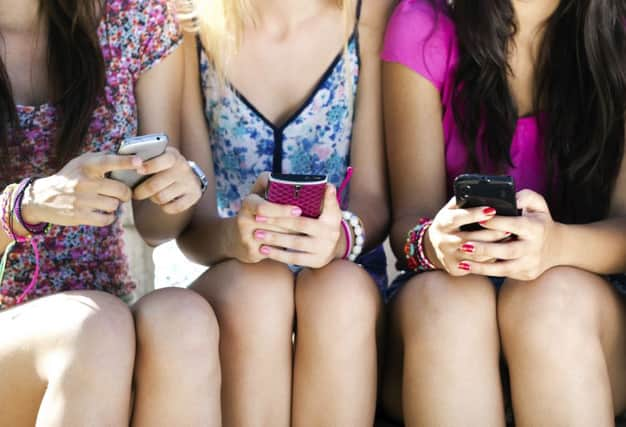Generation Z: Who are they and what do they want?


COMPETING notions are at play when it comes to the youth of today. One strain of the discourse might be summed up by a blog piece I recently saw shared online in which a young Canadian writer sought to introduce “Mother Earth” to the “new generation about to take the reigns [sic]”. This lot is going to sort things out, he asserts, because they’re “totally over this fossil fuel thing” and they “don’t like buying from evil corporations who pollute the planet and exploit impoverished workers”. Yay! Sounds good, kid. Not sure how it squares with the other stuff about how you all “love to travel” and are incessantly online gaining “infinite knowledge”, but on you go.
Another image of today’s bright young things exists, however, and it’s a little less daffily positive. Their sexuality is warped by freely available pornography, their attention spans decimated by flickering screens. They bully each other, eat poorly, obsess about celebrity plastic surgery practices and can’t be bothered to vote. They are inadequately disciplined at home, inadequately educated at school and heading into an arid jobs market either with meaningless qualifications or with none at all. Even those with a more positive view of teenage morality – and there’s plenty of evidence that the current crop are drinking and smoking less and working harder than previous teens – it’s de rigueur for older folk to assume that the stresses are greater and the quality of life lower when Kardashians had yet to be invented and it was all fields round here.
Advertisement
Hide AdAdvertisement
Hide AdSo, is it really that bleak to have been born in the mid-90s or beyond? A new book, Generation Z: Their World, Their Lives, by Chloe Combi, goes to the source rather than relying on scary surveys or tabloid conjecture. (A note on terminology: though the terms are sometimes used interchangeably, “Generation Z” succeeds “millennials”, or Generation Y, who came into adulthood around the turn of the millennium. Other terms floating around include “homelanders” – for a post-9/11 generation of Americans – and Generation K, named after the heroine of The Hunger Games, Katniss Everdeen. Confused? Yeah, that’s because you’re old.)


Whilst working as a teacher, Combi became increasingly aware that young people were being talked about considerably more than they were being talked or listened to – and in that gap in understanding, a monstrous imaginary version of the modern teenager was growing. “A lot of adults forget that young people are still people, who think and feel,” she says. “They approach them like small dim-witted children.” She began interviewing real teenagers, a process that produced a book exploring the gamut of young life experience in 21st century Britain. Some of the detail certainly chimes with the worst fears of doom-mongers and hand-wringers: there’s a child who weighs 17 stone; another who watches porn for four or five hours a day; another who’s been working as a stripper since she was 15. The phrase “rape mostly happens to skets” crops up, as does the phrase “they need to f*** off back to their country and leave us British people in peace”. The speakers are a girl and a boy respectively; and if you’re wondering what sket means, it means what you think it probably means.
However, the book is also warm, insightful and uplifting, finding the wit, insight and precocious wisdom in its subjects, and making the overall point that adolescent and early-twentysomething life is no less varied and morally complicated than what it grows into later on. Parents struggling to comprehend their teen and the world in which they live would do well to absorb what it has to say – the good, the bad and the ugly.
Combi doesn’t regard this generation of teens as significantly more troubled than previous cohorts. “This generation thinks and feels the same things; they just have a different context,” she says. “Being teenage is not a different state than it used to be.” She did, however, experience the urge to intervene in the more pained lives she encountered. “Many times, I did put them in touch with somebody,” she says. “But you can’t rescue everyone. Your commitment as a journalist is to be objective.” As to the challenge of establishing credibility with an age group notoriously prone to sighs and eye-rolls? “It’s really important you are yourself. And I never tried to be street. They’d see straight through that.”
The American filmmaker, Matt Wolf, knows a little of adolescent precocity: in his own teenage years he was a prominent gay rights activist. More recently he directed and co-wrote (with the British journalist Jon Savage) the documentary film Teenage, which explores the rise of youth culture through the 20th century. “I think today’s teenagers are totally demonised,” Wolf says, “but I also think every generation of young people is dismissed by the adults. Adults want to control young people because they represent the future; and young people naturally push back because they’re re-imagining the future on their own terms. That friction between the generations is what creates teenage rebellion… Adults dismiss that rebellion as an emotional rite of passage, but I would argue it’s a space in which significant cultural and political change occurs. History proves it.”


Perhaps the defining shift for this particular generation is being “digital natives”: never having known a world without the internet, and unquestioningly playing out a significant proportion of life online. “It’s a totally foreign perspective for an older generation,” says Wolf. “I do think that the prevalence of social media and the internet has created a new form of anxiety for young people, who have come to expect instantaneous feedback on everything they share. I don’t think the generational impulse to share and to comment is bad – but I do think it has created new forms of angst.”
There’s also the key parental worry of online exposure to disturbing material or malign individuals. “The internet isn’t going to go away,” says Combi, “so there’s very little point in sitting around worrying about it. We need strategies to educate our children in safe behaviour. Parents need to accept that their child has an online life, and equip and enlighten them.” Should this guidance be state-led, or handled privately in the home? “We need a collective, united effort – a real drive to modernise education.”
Neither Wolf nor Combi has children of their own as yet, and perhaps that enables a less panicked attitude. Having seen a child move from babyhood into the surliness and mysterious habits of the teen years perhaps engenders more fearful reactions, often prompted by the notion that an essential innocence is being lost too soon. Did Combi feel her interviewees either had or lacked that quality? “I think innocence is a bit of a constructed fantasy,” she says. “Adults are comfortable with the idea that ‘my child is innocent’ – but I’m not sure I believe in it as a state that can be had and lost.”
Advertisement
Hide AdAdvertisement
Hide AdWhile us grown-ups are theorising about them, how do the creatures in question feel about being lumped together thus? I asked a few people born around the time I headed off to University whether they feel like “Generation Z” – or indeed part of a generation at all. For Lily, who’s 17, lives in Glasgow, and talks to me on her very last day of school, there is a clear line between her own peer group and people even a few years older.
This is neatly defined by the galvanising experience of last year’s Scottish independence referendum, in which 16 and 17-year-old were granted a vote. “I think there’s definitely something special about how we’re coming together and the future we’re going to bring,” says Lily. Though she won’t be old enough to vote in the general election, she sees greater political engagement among her peers: “People are definitely more interested and more knowledgeable.”
As for the technological divide, Lily acknowledges that adults “always expect us to be able to fix stuff!” But internet safety strikes her as a matter of sensible self-preservation. “You know there are bad people and bad places, but you can stay away from them, make sure you have your privacy settings on.” She’s recently spent two weeks abroad with no internet access at all, and says this was “easy” – but she’s also keen to point out the positive side of having an online life, noting how valuable blogging and social media have been in providing a voice for lonely and bullied friends.
Ari, 16, and at school in London, is a little more damning. “Our generation is obsessed with technolo… it prioritises selfies and texts over real-life experiences,” she says. “With no internet or mobile phones I feel that our generation would be less tied down. We’d no longer need to go home at night just to check Facebook, or run inside to make sure our phones are charged…” Ari’s younger brother Asa, 14, confirms that he “can’t imagine growing up without online. It’s a big part of who we are.”
Generational difference has more to do with cultural background for Omar, who’s 21. “As a second-generation British Pakistani, born in Scotland, I find myself with much more of a Scottish identity than either of my parents have and my place in society is very different to what they felt theirs was when they were young.” He feels that his social interaction is far more inclusive, since he’s less likely to feel that “different is bad, or strange… Hearing stories from my mum and dad, it seems that they felt very isolated. I feel my generation have a broader outlook – perhaps somewhat more individually defined, rather than finding our identity in culture, family, religion or any specific single community.”
Omar specifically credits the dreaded internet with this increased open-mindedness. “The most striking thing that I think it did was allow groups of people with similar interests to communicate and come together from across the world,” he says. It has also impacted on his own development – he’s studying for a PhD at Oxford University – by “giving me exposure to the kinds of educational materials, projects and ideas that I could never have gotten even ten years before that.” As to the negative side, Omar says, “We are expressive, and more open in terms of desires… but then again that seems to be a trend which repeats for every generation in the past 100 years or so. We are having a relaxation of a control over our tongues.” He agrees with Lily that far from being apathetic, his generation is “more in tune with the political atmosphere than ever before”. Critically, though, the perceptions of a previous generation that’s sacrificed a lot of its own credibility may not matter much. “Perhaps the fact that we are so impacted by the financial crisis – in terms of opportunities, getting on to the housing ladder and such – makes us particularly eager to take our future into our own hands.”
So, hang on to your prejudices if you want – Generation Z, doesn’t care. And there are at least two sides to every teenager’s story anyway. “Today’s young people are called apathetic, consumer-driven, technology-obsessed,” says Matt Wolf. “Those things are true – but there will always be a faction of young people who are politicised; who resist marketing; and who use technology or new tools to express themselves in unexpected and meaningful ways.” «
Twitter: @HannahJMcGill
Names have been changed for privacy. Generation Z: Their Voices, Their Lives by Chloe Combi is out now, published by Hutchinson. Teenage is available on Soda Pictures DVD